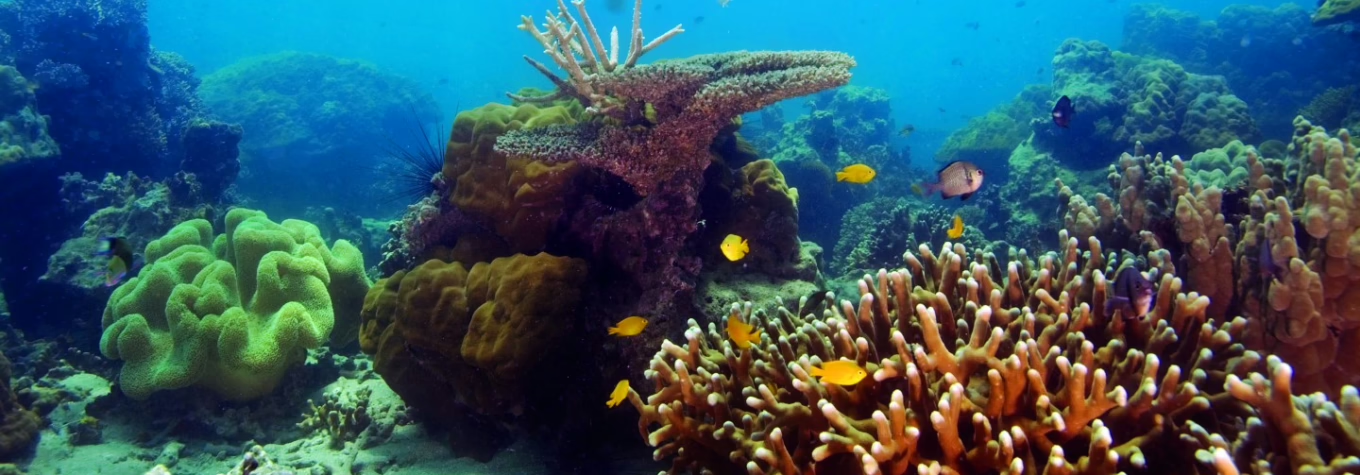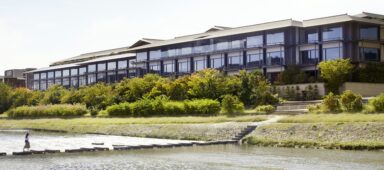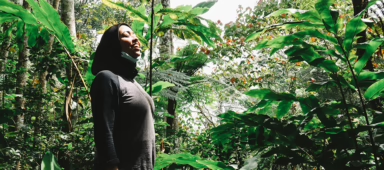Like all conservation efforts, mindset change is crucial for our coral reefs — Julian Hyde, GM Reef Check Malaysia
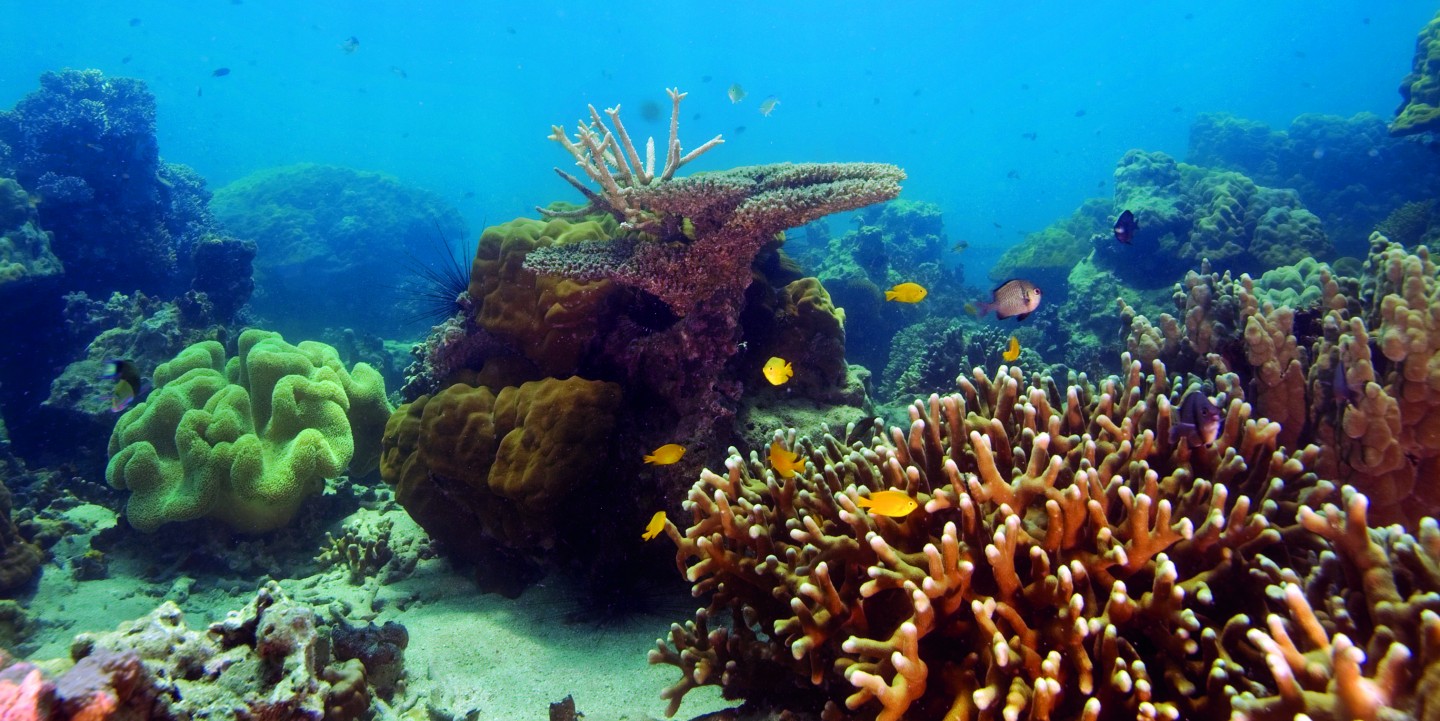
Tell us a bit about Reef Check and what it does in Malaysia.

Reef Check Malaysia (RCM) is a non-profit organisation registered in Malaysia in 2007, working to conserve coral reefs. RCM is part of an international network with its headquarters in the U.S., and one of 82 country offices worldwide. RCM focuses on four main programmes: EcoAction, Advocacy, Management and Science. These programmes complement one another to promote coral reef conservation and management in Malaysia. Under these core areas, we have conducted education programmes with schools and universities, reef rehabilitation programmes in several islands, annual Reef Check surveys to monitor the health of coral reefs in Malaysia and long-term community programmes, to name a few.
Why are coral reefs important?
Coral reefs are among the most diverse and productive biological communities on earth. They are a breeding and feeding ground for one-third of all marine species and provide food and livelihoods for hundreds of millions of people around the world. Yet they cover less than one-tenth of one percent of the world’s ocean floor. Their economic value in Malaysia is huge – one study suggests they are worth more than USD12 billion (RM50 billion) per year in ecosystem services. To put it another way – if the reefs go, the habitat for many marine species will disappear. There will be no more fish!
What is the state of Malaysia’s coral reefs?
Data collected from our surveys over the last 10 years shows that reefs are in quite good condition. According to a commonly used index of coral reef health, our reefs are measured on the border between fair and good. But this is the average for Malaysia, and this average hides a wide variation; there are reefs that are in very good condition and reefs that are in decline. This just serves to emphasise one lesson we have learned – that reef conservation is a very local activity and it is actually quite difficult to compare reefs in different areas.
Are local authorities involved in the conservation and protection of our coral reefs?
Malaysia has established a number of marine parks to protect coral reefs. In 1994, most of the islands off the east coast of Peninsular Malaysia were gazetted as marine parks, and the Department of Marine Park is responsible for managing those. There are similar agencies in Sabah (Sabah Parks) and Sarawak (Sarawak Forestry Corporation).
These managing agencies are largely responsible for administering the parks and enforcing the rules. We work closely with the Department of Marine Park Malaysia on several of our programmes, and Sabah Parks in Sabah. They support our annual survey programmes with some funding and staffing during the surveys.
Have their measures been successful?
The marine parks have had some successes, and have certainly contributed to conservation. This said, there are challenges to be addressed, and we are working with them to better manage these important resources.
What else should they do?
One area in which we could do more is to involve local stakeholders in the management process. To date, most marine parks have been managed by the relevant agency with little input from local communities and businesses like resorts and dive operators. Given that these are the people who most rely on reefs for their livelihoods, we believe they should be more involved in the management of these resources.
State governments are important stakeholders too. They are responsible for development on the islands – and what happens on the land affects what happens in the sea. At the moment, there is a disconnect between the planning process and the conservation process, which better communication would help to resolve.
Reef Check Malaysia has been in operations for nearly 10 years now; how successful have the programmes been?
I think our track record is pretty solid. This year marks our 10th annual survey programme – the only one in Malaysia that is providing long-term monitoring data, which is essential in managing and tracking reef health. As we have evolved from a survey-based organisation into one that is involved with communities in managing reefs, we have seen an increase in awareness of reef conservation issues, particularly with the diving industry.
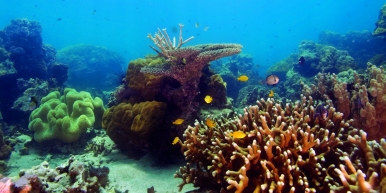
We have trained over 500 people as EcoDivers, who help with surveys, and we have a network of Reef Check Facilities around Malaysia. Over 30 dive centres have signed up as Green Fins members (which we help to manage in Malaysia), who are committed to improving their environmental performance by reducing impacts to coral reefs. And we are doing more work on the ground, working with local stakeholders to involve them in conservation programmes.
What obstacles are you facing?
The biggest problem we face, in common with all conservation organisations, is changing mindsets. It is difficult to get people to care about coral reefs when so few people ever see them – we call them ‘the invisible ecosystem’. Too few people understand how important they are, and without that understanding people show little concern.
Take littering, for example, which is sadly a bad habit of too many Malaysians, and which you might not think is relevant to coral reefs. But people who litter don’t realise the consequences their actions can have in distant locations. Litter dropped in cities easily ends up in rivers, and from there it’s a short distance to the ocean where marine animals eat it – many turtles are found to have plastic in their stomachs, which just means they can’t eat enough to remain healthy – or it can cause physical damage to reefs; for example, plastic bags can easily wrap around corals, causing them to die.
So despite everything we have achieved to raise awareness, we still have to do more!
How can the public help?
In many, many ways. In terms of our programmes, certified divers can help us by participating in our EcoDiver training programme and then, our annual Reef Check surveys around the country. We cover over 200 sites a year and always need the help of volunteers.
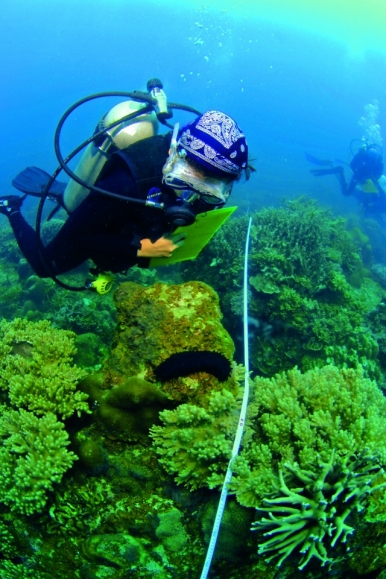
Divers can also choose to dive with dive centres that are members of Green Fins. Green Fins is an international programme that promotes green diving and snorkelling etiquette. RCM is part of the National Management Team of Green Fins, and four of our staff are Green Fins assessors. As of today, there are over 30 Green Fins members in Malaysia.
Non-divers can participate in our community programmes and help spread the word on the importance of coral reefs. Snorkellers can choose to snorkel with Eco-friendly snorkel guides trained by RCM to have a better snorkelling experience that does not impact the marine environment. These snorkel guides are on Perhentian and Tioman Island.
And we can all do our part to reduce our consumption of non-sustainable resources, so that we each reduce our personal environmental footprint just a little – after all, if everybody did it, the cumulative impact would be huge. Using less water and electricity, for example, or using public transport instead of our own car – every little helps.
